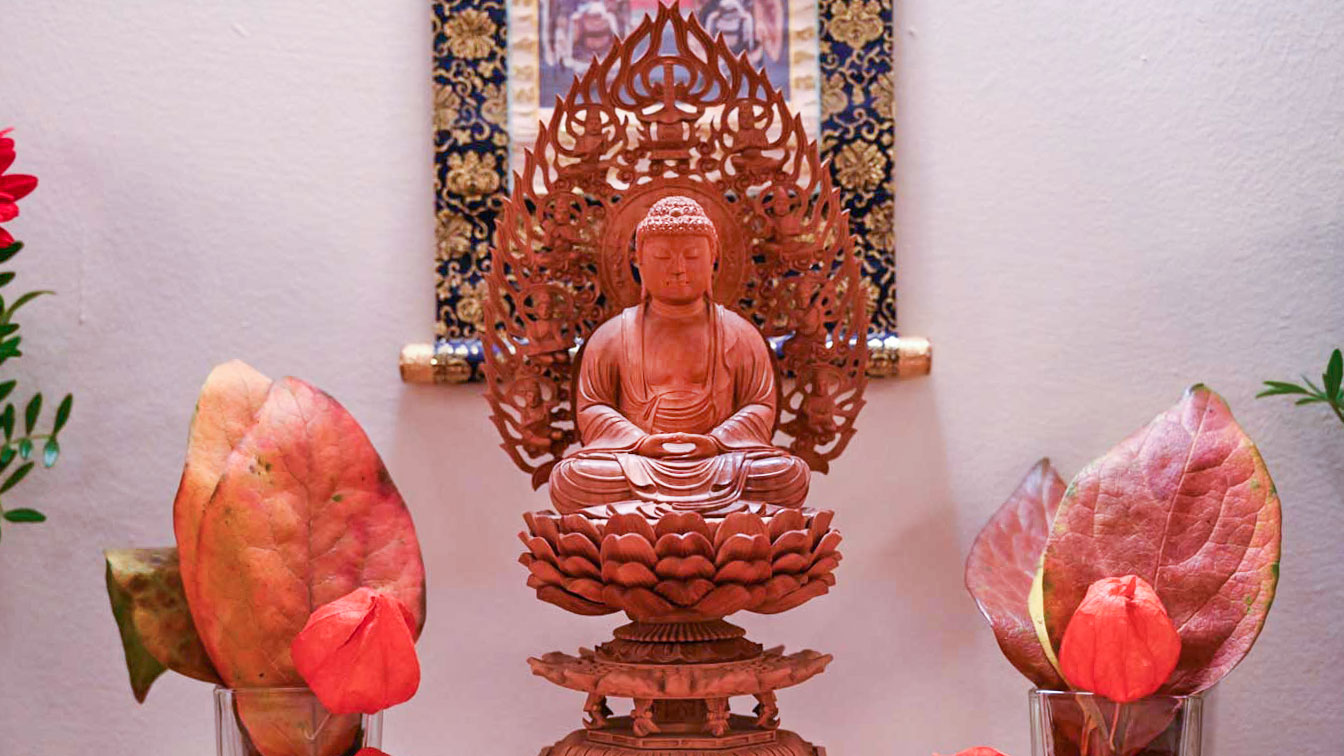
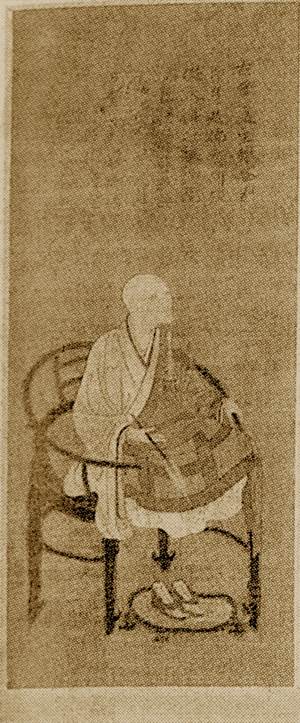

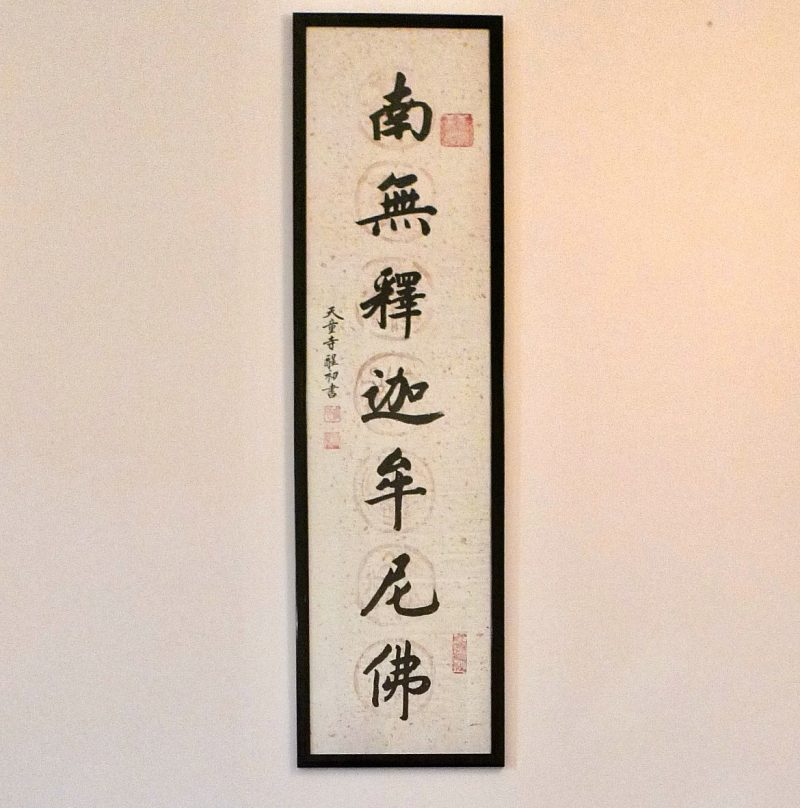

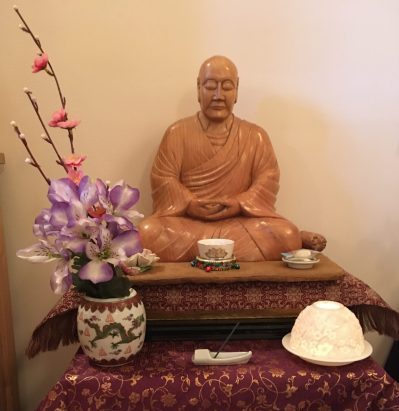



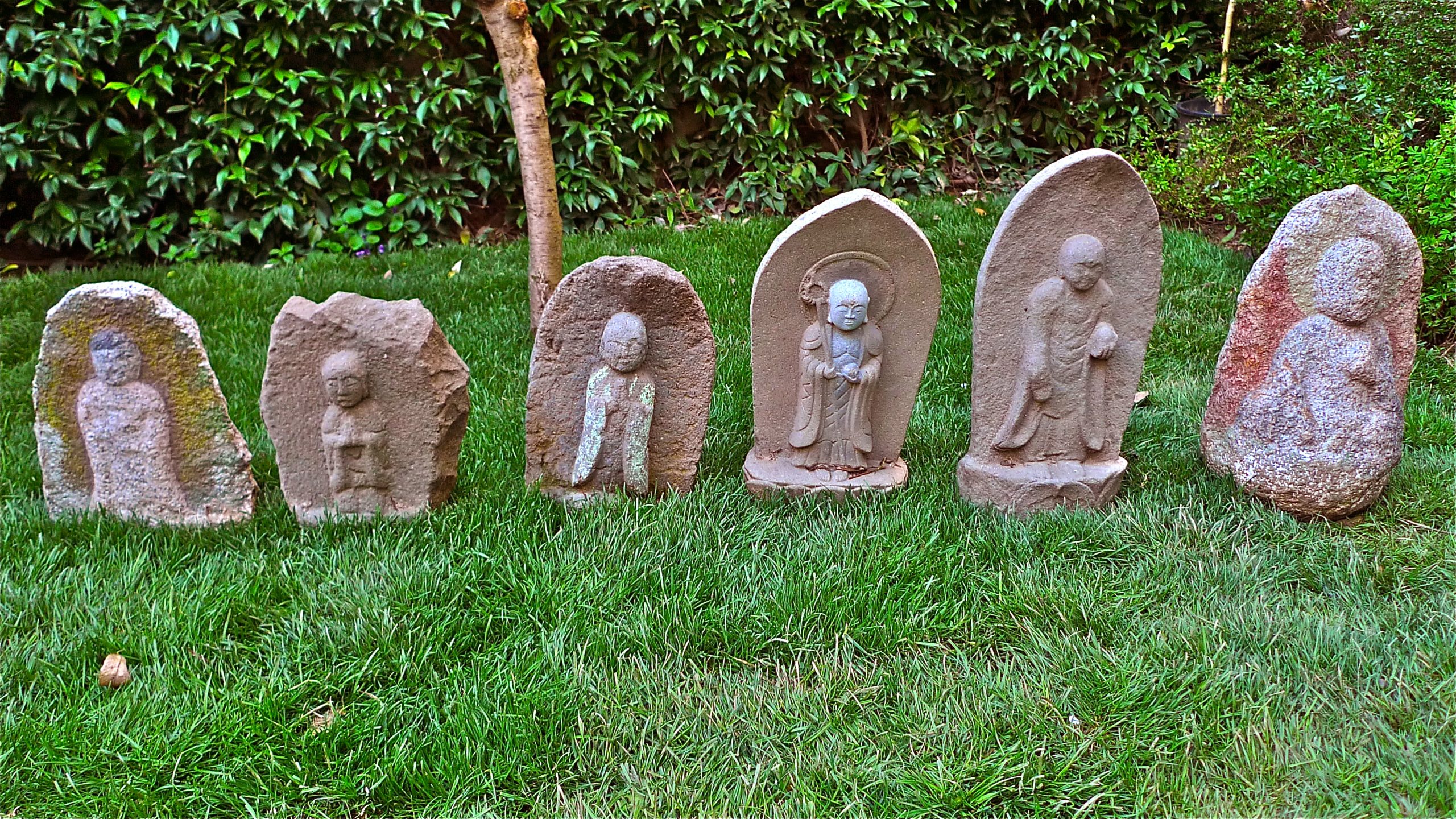
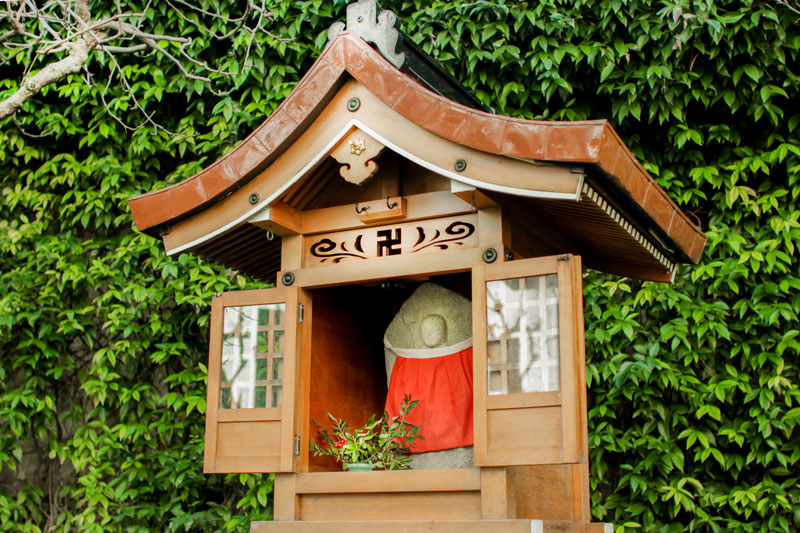

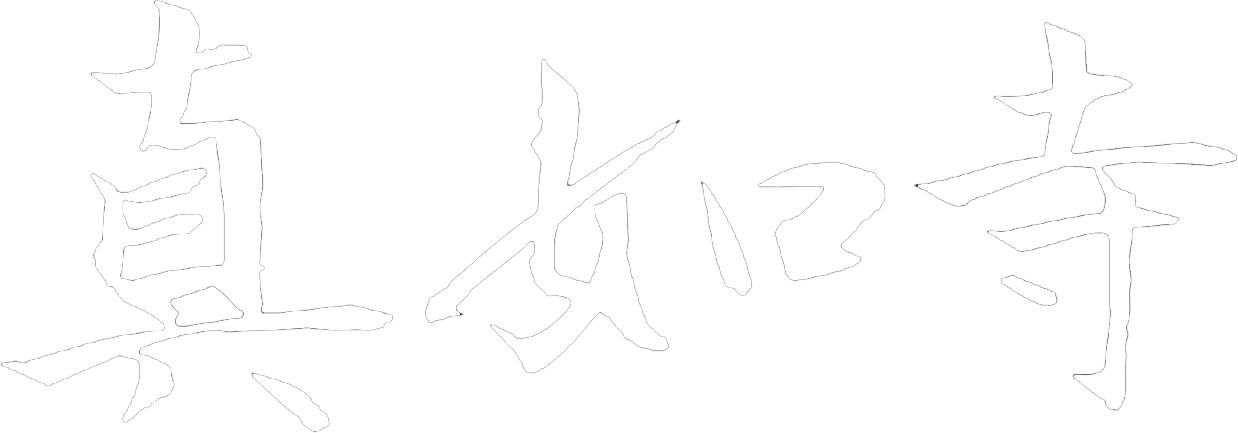













Zen Buddhist Temple of the Japanese Sōtō-shū School
HISTORY

Shinnyoji Temple (真如寺, lit. “Temple of Truth, as it is”) was founded in September 2004 by Rev. Anna Maria Shinnyo Marradi and officially recognized by Rev. Ryūshin Azuma Rōshi, former 72nd Abbot of the Daijōji Monastery (大乗寺) in Kanazawa in Japan who sealed the title with a calligraphy writing upon a wooden Board (pictured left): "Shinnyoji Daijōji Italy Betsuin" which in English means, “Temple of Truth, as it is, Italian Branch of the Daijōji Monastery”. For the 17th anniversary of Shinnyoji, Rev. Ryūshin Azuma Rōshi reinforced the link between Shinnyoji and Daijōji by calligraphing a new script. See the translation of the calligraphies here.
LINEAGE
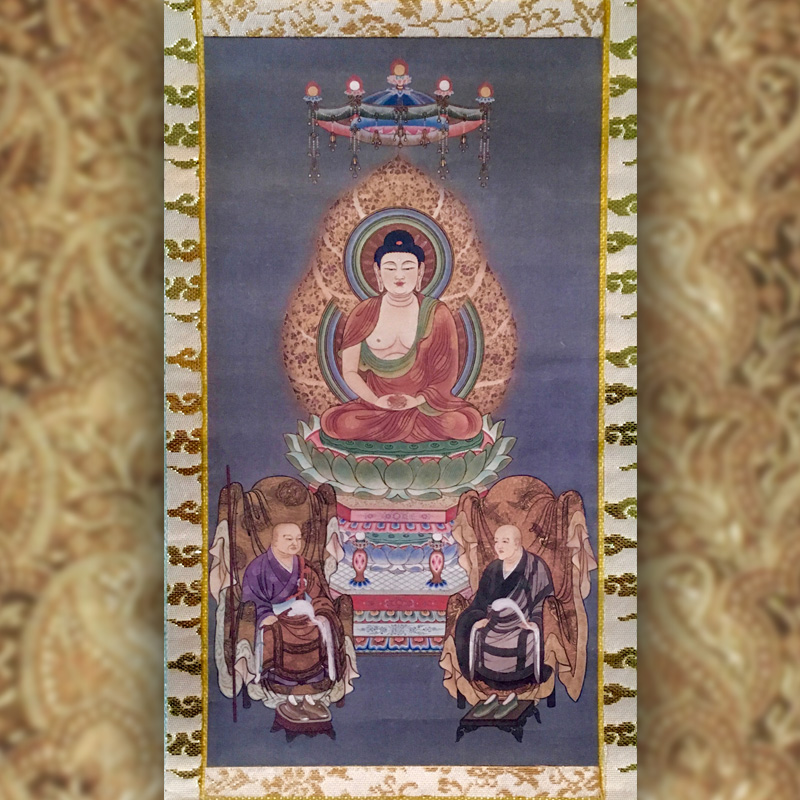
Sōtō-shū (曹洞宗) is one of the two major schools of Japanese Zen Buddhism. It embodies the transmission of a Lineage and of the Teaching of Shakyamuni Buddha who, through the Chinese school Caodong, were brought to Japan through the works of the Japanese monk Eihei Dōgen in 1227, is the progenitor of the Sōtō Zen School and founder of the Eiheiji Temple. The co-founder of the Sōtō School is Keizan Jōkin, founder of the Sōjiji Temple and 2nd Abbot of Daijōji. Rev. Tenrai Ryūshin Azuma Rōshi is the 72nd Abbot of the Daijōji Monastery in Kanazawa, Japan, belonging to the Sōjiji Lineage, it is one of most noted and followed representatives of the Sōtō School in the world.
TEACHER

Rev. Anna Maria Iten Shinnyo Marradi (伊天真如) recieved the Shihō – the Transmission of the Dharma – by Rev. Ryūshin Azuma Rōshi at Daijōji Monastery on June 2th, 2008. The latter, titled to Abbot, recieved during the Zuise Ceremony at the Eiheiji Monastery on June 21st, 2008 and at the Sōjiji Monastery on June 22nd, 2008 and with this achievement, became part of the Nitōkyōshi level on February 8th, 2010, authorizing Rev. Shinnyo Marradi to Ordain followers into entering the official Lineage.
MASTERS
Rev. Tenrai Ryūshin Azuma Rōshi
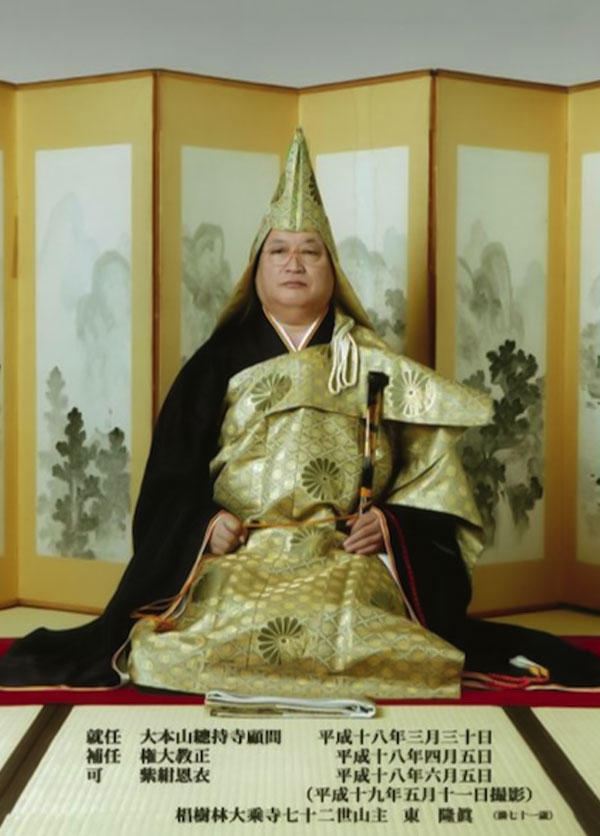
Rev. Anna Maria Iten Shinnyo Marradi
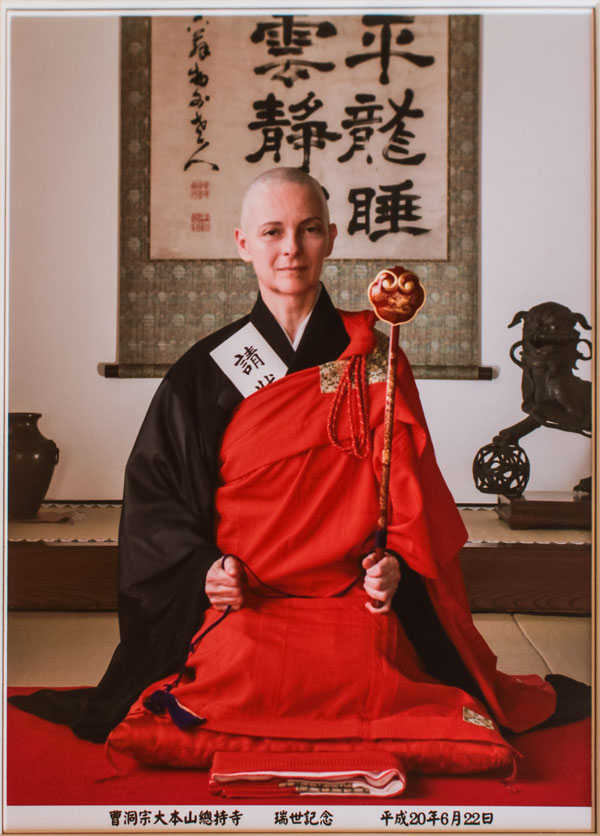
INDIA
Bibashi Butsu Daioshō
Shiki Butsu Daioshō
Bishafu Butsu Daioshō
Kuroson Butsu Daioshō
Kunagonmuni Butsu Daioshō
Kashō Butsu Daioshō
Shakyamuni Butsu Daioshō
Makakashō Daioshō
Ananda Daioshō
Shōnawashu Daioshō
Ubakikuta Daioshō
Daitaka Daioshō
Mishaka Daioshō
Bashumitsu Daioshō
Butsudanandai Daioshō
Fudamitta Daioshō
Barishiba Daioshō
Funayasha Daioshō
Anabotei Daioshō
Kabimora Daioshō
Nagyaharjuna Daioshō
Kanadaiba Daioshō
Ragorata Daioshō
Sōgyanandai Daioshō
Kayashata Daioshō
Kumorata Daioshō
Shayata Daioshō
Bashubanzu Daioshō
Manura Daioshō
Kakurokuna Daioshō
Shishibodai Daioshō
Bashashita Daioshō
Funyomitta Daioshō
Hannyatara Daioshō
CHINA
Bodaidaruma Daioshō
Taisō Eka Daioshō
Kanchi Sōsan Daioshō
Daii Dōshin Daioshō
Daiman Kōnin Daioshō
Daikan Enō Daioshō
Seigen Gyōshi
Sekitō Kisen Daioshō
Yakusan Igen Daioshō
Ungan Donjō Daioshō
Tōzan Ryōkai Daioshō
Ungo Dōyō Daioshō
Dōan Dōhi Daioshō
Dōan Kanshi Daioshō
Ryōzan Enkan Daioshō
Taiyō Kyōgen Daioshō
Tōsu Gisei Daioshō
Fuyō Dōkai Daioshō
Tanka Shijun Daioshō
Chōro Seiryō Daioshō
Tendō Sōkaku Daioshō
Secchō Chikan Daioshō
Tendō Nyojō Daioshō
JAPAN
Eihei Dōgen Daioshō
Kōun Ejō Daioshō
DAIJŌJI
Tettsū Gikai Daioshō
Keizan Jōkin Daioshō
Meihō Sotetsu Daioshō
Syugan Dōchin Daioshō
Tessan Shikaku Daioshō
Keigan Eishō Daioshō
Chūzan Ryōun Daioshō
Gisan Tōnin Daioshō
Shōgaku Kenryū Daioshō
Kinen Hōryū Daioshō
Taishitsu Chisen Daioshō
Kokei Shōjun Daioshō
Sessō Yūho Daioshō
Kaiten Genju Daioshō
Shūzan Shunshō Daioshō
Chōzan Gen-etsu Daioshō
Fukushū Kōchi Daioshō
Myōdō Yūton Daioshō
Hakuhō Genteki Daioshō
Gesshū Sōko Daioshō
Manzan Dōhaku Daioshō
Chitō Shōgen Daioshō
Itsunyū Kakumon Daioshō
Donzui Zenmyō Daioshō
Bukkai Tenryū Daioshō
Tengan Donryū Daioshō
Kōzan Kakuryū Daioshō
Gettan Shunryū Daioshō
Hongyō Genshū Daioshō
Sogetsu Ryūtan Daioshō
Tenrai Ryūshin Daioshō
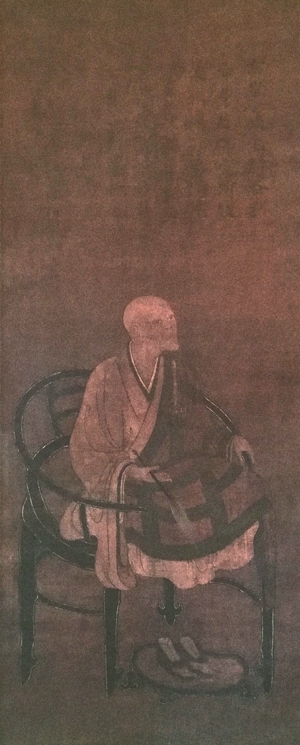
At Shinnyoji, the Temple is always open to anyone regardless of orientation or belief and for any level of commitment. Anyone may meditate on the scheduled days and times of practice: a zafu – cushion for meditation – is always available for whomever, at any moment of their life, decides to sit in Zazen.
ZAZEN
Monday | 7:30 pm - 9:00 pm
Tuesday | 6:30 am - 7:10 am
Thursday | 7:30 pm - 9:00 pm
SESSHIN/ZAZENKAI
Once per month
ANNUAL INTENSIVE RETREATS
Every six months
During every Retreat the Teacher Maestro Shinnyo Marradi holds a Teishō
Monthly opening schedule
The Library, which is open exclusively for onsite use of materials, offers texts about Zen and shelves publications about Buddhism in Italian, English, French, Japanese and Chinese. The comfortable and welcoming Room faces the Zen garden and the silence and special atmosphere of the location will accompany every moment spent in the Libarary.
A Practitioner will always be present to give information about the medtitation Practice that is regulary scheduled at the Temple and to accompany the guests for any future visits within the Center, Temple and Meditation Hall.
The Library is open to everyone, we ask that guests stay quieta s in every place of worship or study.
The visitor must fill out a “guest card” upon entrance with the Florence Zen Center Cultural Association.
Services offered by the Shinnyoji Library:
Consultation of sheduled meetings
wi-fi
A practitioner present and available for information.
VIEW THE CATALOGUE »
